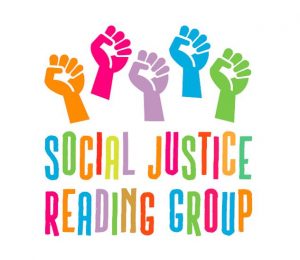
Discussion questions and titles for the December 2017 meeting.
4-6 Year Old Group
Still a Family
Reflect on the Story:
- Where did the girl in the story live? Who did she live with?
- What kinds of things did her family do to show their love for each other?
Reflect onto Self:
- What kinds of things do you have in common with the girl in the story? How were you different?
- What do you think it would feel like to live in a shelter like the girl in the story?
Apply to the World:
- Why do you think someone might live in a shelter, like the girl and her family?
- What would happen to homeless families without shelters? Is it fair that some people don’t have safe and comfortable places to live?
Last Stop on Market Street
Reflect on the Story
- Do we know where CJ and his Nana live? What do you think their life is like?
- What is CJ’s relationship to the soup kitchen? Why do you think he felt like that?
Reflect onto Self:
- CJ enjoyed helping out at the soup kitchen – have you ever helped out someone in need? What did you do?
- CJ and his Nana have to take a long bus ride to get to the soup kitchen. CJ complains that his friends Miguel and Colby never have to go anywhere after church. How do you think you would feel if you were in CJ’s situation?
Apply to the World:
- The neighborhood that CJ and his Nana stop in for the soup kitchen is dirty and maybe a little scary. What do you think it’s like to live in a neighborhood like that? What sort of people did CJ find there?
- What are some reasons people might not have a place to live? How are some ways that our communities can help those people?
7-11 year old group
Lily and the Paper Man
Reflect on the Story:
- How does Lily feel about the Paper Man at the start of the story? How does she feel at the end?
- Why do you think it was so important to Lily to help out in the Paper Man?
Reflect onto Self:
- Lily thinks about the Paper Man out in the cold while she is snuggled warm in bed. What comforts do you have at home that other people might not have?
- What do you think it feels like to be unsure of how you will stay warm of or where your next meal will come from? What about to not have somewhere safe and comfortable to live?
Apply to the World:
- Why do you think some people might not have enough to eat or a place to live? Is that fair?
- Lily helps out the Paper Man with warm clothes. Her mother buys the newspaper from him. What are other ways our communities can help those in need?
Four Feet, Two Sandals
Reflect on the Story:
- Why were Lina and Feroza living in a refugee camp? What was their life like there?
- In what ways did Lina and Feroza take care of each other? How did their friendship affect their lives?
Reflect on Self:
- Lina and Feroza didn’t have very much, so the things they did have (like the sandals) were important to them. What things are important to you? What about people?
- How do you think it would feel to not only lose your home, like Lina and Feroza, but also move to a new and unfamiliar country?
Apply to the World:
- Lina and Feroza lived in the refugee camp because they were displaced by war. Do you think people in countries that are not at war might be homeless too?
Discussion tips:
- Try to encourage equal participation as much as you can! Some children will inevitably contribute to the discussion more than others, and that’s okay, but whenever possible feel free to encourage everyone’s voice to be heard. If one voice is dominating the conversation, it’s okay to say something like “I’m so glad you have so much to share! I hope you’ll tell me more about it later, but I also want to make sure all of our friends get a chance to talk.”
- It’s okay to use these questions as a guide rather than a check-list – you don’t need to ask all of them or proceed in a strict order if your group’s discussion is proceeding organically.
- Open-ended questions rather than questions that can be answered with “yes” or “no” will lead to richer and deeper discussions and concepts. If you do have some yes/no questions, make sure you follow up with the group and encourage them to explain or expand on their answers.
- Emphasize empathy, understanding, and kindness for all!
A selection of titles from the December 2017 meeting of the Social Justice Reading Group. December's topics were poverty and homelessness.


Add a comment to: December 2017 – Poverty and Homelessness